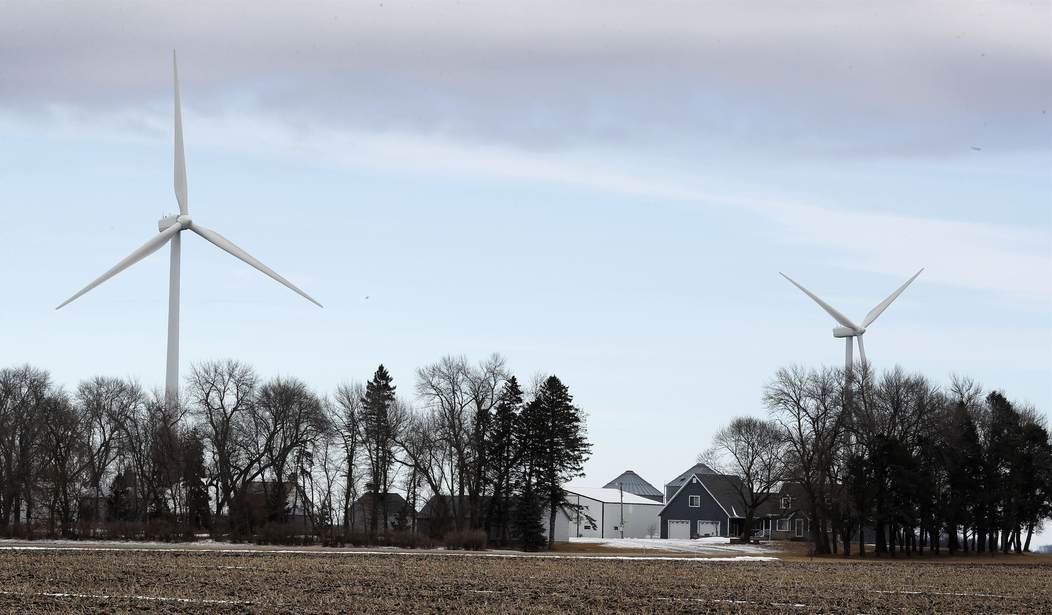Our modern society depends, as I've written many, many times, on plentiful and cheap energy. We are heavily technology-dependent, for better or worse, for everything from doing our financial business to keeping our homes repaired and comfortable to growing and distributing our food. And, for the time being, there just simply is no substitute for oil and natural gas to meet most of these needs. These hydrocarbon fuels, of course, produce emissions; those emissions include carbon dioxide (CO2), and climate scolds bemoan the climate-changing effects of these emissions.
You know all that already, but the recap is important to understanding a growing rift in the climate-change alarmist community. The Daily Sceptic's Environment Editor, Chris Morrison, in an article released on Sunday, has some interesting information on the civil war that is about to break out among the climate scolds.
Greens hate hydrocarbons but open warfare is breaking out in their ranks as the world outside their luxury millenarian cult realises it is impossible to run a modern industrial society without hydrocarbons. In the U.K., the penny is finally dropping that gas is the only realistic backup to an electricity system powered by unreliable breezes and sunbeams. But at the same time the mad Miliband crew is closing down local oil and gas exploration, and step forward Professor Robert Howarth of Cornell University who claims transportable American liquified natural gas (LNG) has a bigger ‘carbon’ footprint than coal.
What all this amounts to is that this gas "backup," which really should be the primary generation source — unless the greens are suddenly willing to accept nuclear power — requires some kind of carbon sequestration to keep the climate scolds happy. But the main method suggested, injecting CO2 into rock strata, is fraught with peril.
Pennies dropping over gas backup lie behind the recent decision by the U.K. Government to waste £22 billion capturing carbon dioxide and burying it underground. The sheer futility of this exercise is obvious to many since it will require enormous amounts of energy to capture and compress a gas that is likely to eventually seep out of any nearby cavernous hole in the ground. The whole exercise bears some similarity to the old lag Fletcher telling Prison Officer MacKay in the 1970 sitcom Porridge that the prisoners had hidden the earth from an escape tunnel by digging another hole to put it in.
It gets worse. Ever heard of Cameroon's Lake Nyos? In 1986, there was a huge release of carbon dioxide from that lake, with devastating results for the surrounding areas. Now, it's important to note that the Lake Nyos event was due to a buildup of CO2 from volcanic activity, not a release of CO2 that was injected into the rocks under Lake Nyos — but the same principles apply.
In geological terms, pumping massive quantities of pressurised gas into the substrata may come with some risks. On August 21st 1986 there was a sudden release of 1.6 million tons of magmatic CO2 from the bed of Lake Nyos in Cameroon. Heavier than air CO2 fell on the surrounding villages and suffocated 1,746 people. The gas had accumulated under high pressure and could have been released by volcanic activity or a minor earth tremor. One of the first sites for U.K. CO2 storage is Liverpool Bay, while other locations around the country have been identified. No doubt strict geological guidelines will be observed to ensure CO2 does not escape in bulk, but over time conditions might change. The suggested threat from earthquakes was enough to ban onshore fracking in the U.K. and it will be interesting to see if similar concerns arise when many millions of tonnes of pressurised CO2 are being buried.
Here's where things get interesting: No matter what carbon sequestration schemes are proposed, some of the climate scolds are going to oppose them. Why? Not because they work or don't work — but because some see these techniques as a way to continue the use of fossil fuels.
See Related: America's Energy Inventory: An Argument for Coal
The Data Is Clear: Hurricanes Are Not Getting More Dangerous
There are, of course, those among the climate scolds who want any use of fossil fuels ended no matter what, no matter what the consequences on our modern technological lifestyle.
As we have seen, so-called climate ‘solutions’ such as carbon capture are hated by true green cult believers. The green billionaire activist unit Oil Change International (OCI) has described carbon capture as a “colossal waste of money”. In a recent detailed report, OCI noted past expenditure of $83 billion with a failure rate of over 80% in the U.S. “Carbon capture projects consistently fail, overspend or underperform,” states OCI.
The hatred arises because carbon capture is seen as legitimising the continued use of hydrocarbons. The less insane greens are finally realising that they cannot ban hydrocarbons altogether. This is due to the fact that half the world’s population would die without hydrocarbon-based medicine, fertiliser, waste disposal etc. But of course the true believers are right in that carbon capture is a colossal waste of money providing little more than a fig leaf to cover the continued use of oil and gas.
There is, of course, an answer that is staring us in the face concerning electrical generation: nuclear power. But these same green energy advocates won't accept nuclear power, either.
But this is the beginning of what may well be a broader conflict among the green energy advocates and climate scolds. It's not just the use of hydrocarbons for fuel, we must note; hydrocarbons from oil, in particular, are used in a huge variety of applications, from plastics to floor wax to preservatives to solvents to clothing to refrigerants to pharmaceutical precursors. We literally cannot get along without hydrocarbons, which are almost exclusively derived from petroleum, and that would be true even if we were to wave a magic wand and eliminate overnight the need for internal combustion engines and the need for natural gas and home heating oil to keep our homes comfortable — even the cellular phones the climate scolds use to plan their protests would not be possible without materials extracted from petroleum.
Some of the greenies and climate scolds, it seems, are beginning to figure this out. Others are accusing the former group of insufficient zeal in the cause of destroying our modern technological lifestyle. They are coming to open conflict — and as the old saying goes, when your opponent is making a mistake, let him.
Or, in other words:














